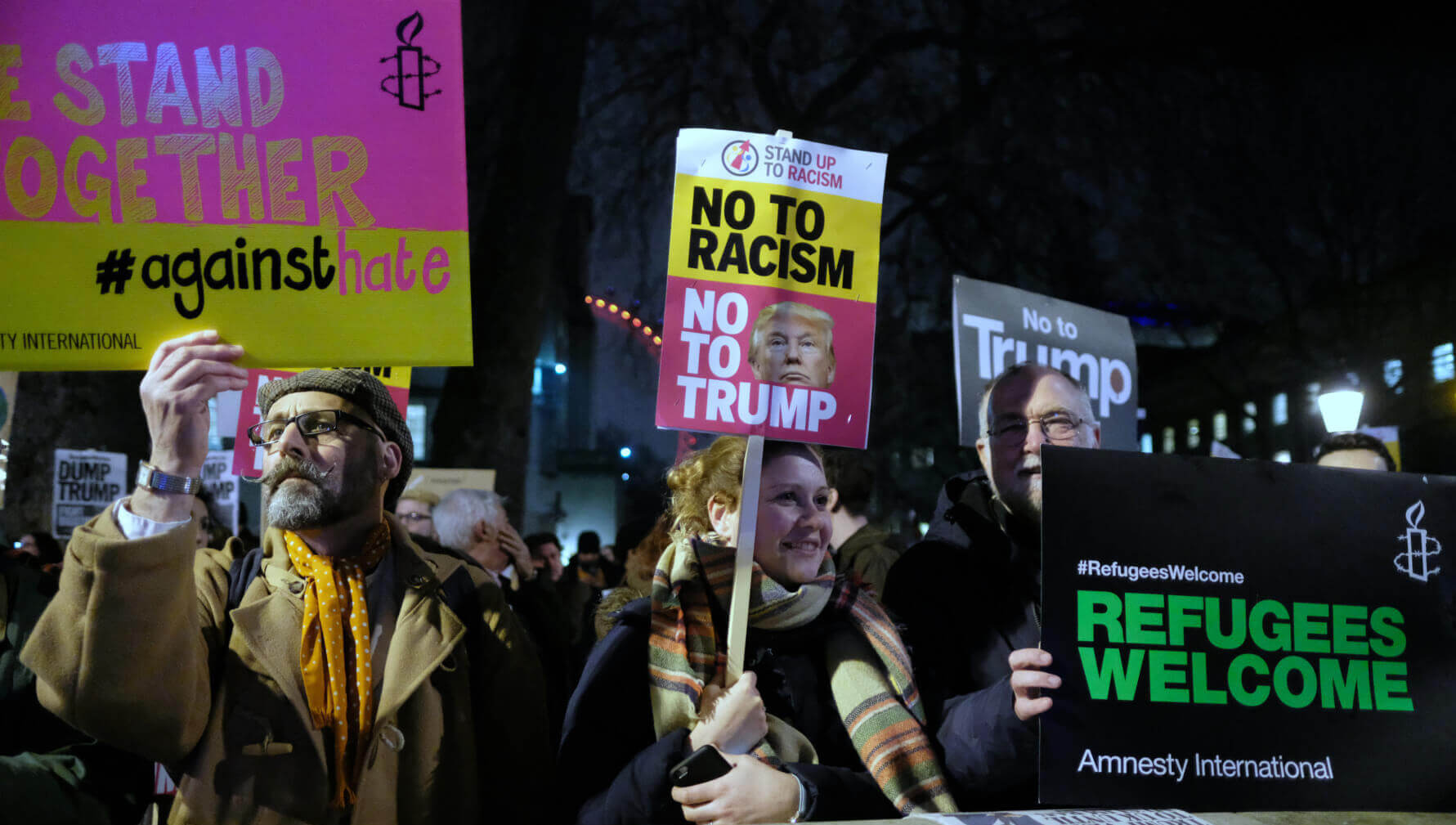According to the Race Report, published recently by the Commission on Race and Ethnic Disparities, the British system is no longer “deliberately rigged against ethnic minorities.” Arguably, British education is the “most emphatic success story of the British ethnic minority experience.”
Yet, the report contradicts recent findings within British education systems. Studies show that Black Caribbean pupils experience an exclusion rate five times higher than white pupils. Over the past five years, 60.000 racist incidents have been recorded in schools. Today, black pupils are still being “written-off” for their behaviour, whether for “inappropriate haircuts” or simply for not adhering to the behaviour deemed appropriate by the dominant culture.
We often condemn the United States and the racist contours of their landscape, while Britain claims innocence — “a model for other White-majority countries.” In a recent article, I turned to America to explore their legacy of excluding African Americans and their history from education. But the U.K. is not innocent either.

Racial inequality resides in every corner of the classroom. Whether it concerns direct racism in the schoolyard, educators being primarily White and teaching White history that obscures racial violence and black history, or the hidden structural racism impeding educational endurance and achievement for ethnic minorities. The racial divide in British education is deep and veils the history that manifested the colour line in the first place.
The British Empire Educating her Subjects
During British Imperialism, education was a privilege exclusively reserved for the White person. The White slave masters knew that education would socialise the enslaved Africans, and as education was “designed to fit people into society rather than exclude them, it was in the best interests of masters to deny education to their slaves.”
The only form of education granted to Africans was teaching Christianity — an important practice in the British colonies. Part of that practice included teaching slaves to read for the purpose of Bible reading. Writing was withheld to ensure white supremacy and evade equality between master and slave.
Related Articles: How Education Sustains Racial Inequality and White Supremacy | Reversing Education Inequities in Lagos, Nigeria | Tackling Systemic Racism and Our Biases through Empathy
By 1833, proceeding the violent enslavement of 3.1 million Africans, slavery was abolished. Upon emancipation, Britain proposed projects of amelioration for “improvement in the character of the Slave population.” The Amelioration Act of 1798 sought to “civilize” the soon-to-be freed Africans in British colonies — “to educate them to live and work in a free society.” It was even said at a Commons sitting in 1824 that “the country must take on itself the burthen of their protection and education” as no one else would have interest in the freed slaves.
Proceeding emancipation, the British Empire looked to its colony, India, for a cheap work force. They introduced the system of indentured labour — acknowledged as “slavery under a different name” as it was just as unequal, exploitative and inhumane. Unlike in Africa and the West Indies, with missionary teachings of the Bible, India already possessed an indigenous system of education upon British arrival. Building on that system, Britain introduced the English Education Act of 1835, funding education and literacy in India. Yet, the education was in English and Western thought, thus overthrowing indigenous, cultural and ancient teachings of India. According to researcher Kanika Bansal, Western education was encouraged and “Englishmen from Europe came to India with the aim of destroying the prevailing religious faith amongst the Indians and to promote Christianity.”
Racial Tensions in the Motherland — Era of Windrush and Black Activism
Whether it was educating the colonised populations in literacy, English, Christianity or Western thought, the British Empire sought to annihilate indigenous knowledge of colonised African and South Asian peoples. Christianity and Western thought were considered superior forms of knowledge in the British Empire.
During the mid-19th century, as Africa was fighting for its independence, the British landscape was highly diverse, and the racial tensions were running high. South Asian and African populations had arrived in Britain at various times. Some arrived in the period between the slavery era and World War I, when Indian and African soldiers involved in the war settled in Britain afterwards, while others, mainly African-Caribbean peoples from former colonies, onboarded the HMT Empire Windrush ship to travel to Britain for work.

For the people of the Windrush generation, Britain would be a site of racial struggle and violence. Education was essential for job opportunities. But their educational experience was deeply racialised. In the Oral History Collection from the Museum of London, a person recalls they had to speak “the Queen’s English” as otherwise they “would not be looked on well.” Furthermore, young Black Caribbean children, often boys, were defined as “educationally sub-normal.”
During the 1960s and 1970s, Black pupils in British schools endured racism daily. Their presence was deemed “problematic” and they were often written off for their ability to speak English, negative self-images, or identity crises, and were sent to Educationally sub-normal schools (ESN Schools), where ethnic minorities constituted 34% of pupils. Bernard Coard particularly objected, as he discovered that “normal” children were placed in ESN schools and were not even being taught to read or write. Conveniently enough, the pupils were disproportionately of West Indian background.
The racism raging the classrooms led to black activism. The Black Education Movement emerged in the 1960s to support Black children faced with a “prejudiced and inadequate” education system, particularly those placed in the ESN schools. Unwilling to accept the unjust treatment of Black pupils and a “failing racist education system,” Black teachers and parents set up independent supplementary schools that taught elementary courses including pan-Africanism. They also aimed to build the self-esteem of Black pupils that had been targeted by a racialized education system. This was an era where Black parents, teachers and young students had to fight for their right to education.
In the 1970s, people of Asian descent mobilised themselves against the continued perpetration of racism in education. South Asians who had settled in post-war Britain founded the Asian Youth Movement to confront racial injustice including a racist education system. In particular for Indians, their education programmes sought to connect with their history, which had previously been obscured by Western thought.
Modern-day Institutional Racism in British Education
People of African and Asian descent have a long legacy of enduring a system of White supremacy that suppresses their history and denies their right to education either by direct racist remarks or by an education system that puts ethnic minorities at a disadvantage — a problem still haunting modern-day education.
Racial justice in British education is not an easy task but a long overdue and necessary transformation. A 2020 Runnymede, study discloses that the teaching force is still overwhelmingly white and racially illiterate, which impedes serious anti-racist work in schools. Furthermore, police forces have an alarmingly increasing presence at schools, policies do not fully address the ongoing racism, and the national curriculum remains focused on White history.

But activists are fighting for a change. Grassroot groups have started reforming school curriculums around the country to include “the Diverse Curriculum” that will dedicate nine weeks to black history lessons, and Welsh schools have even set an example by making black history lessons mandatory.
Yet, there is still a lot of work ahead to combat racism in British education.
The rich history of children of African or Asian descent, by and large, remains obscured. Also problematic is the attitude that a comprehensive inclusion of all of Britain’s history, however uncomfortable, has not contributed deeply to the British society that we see today, nor does it matter deeply for moving toward a better future for all. Education is the backdrop of continued racism, racial illiteracy and the endurance of white supremacy. Without education, how can we ever hope to understand and at last achieve racial equality?
Editor’s Note: The opinions expressed here by Impakter.com columnists are their own, not those of Impakter.com. — In the Featured Photo: The Radcliffe Camera, Oxford University. Featured Photo Credit: Matthew Waring, Unsplash.














